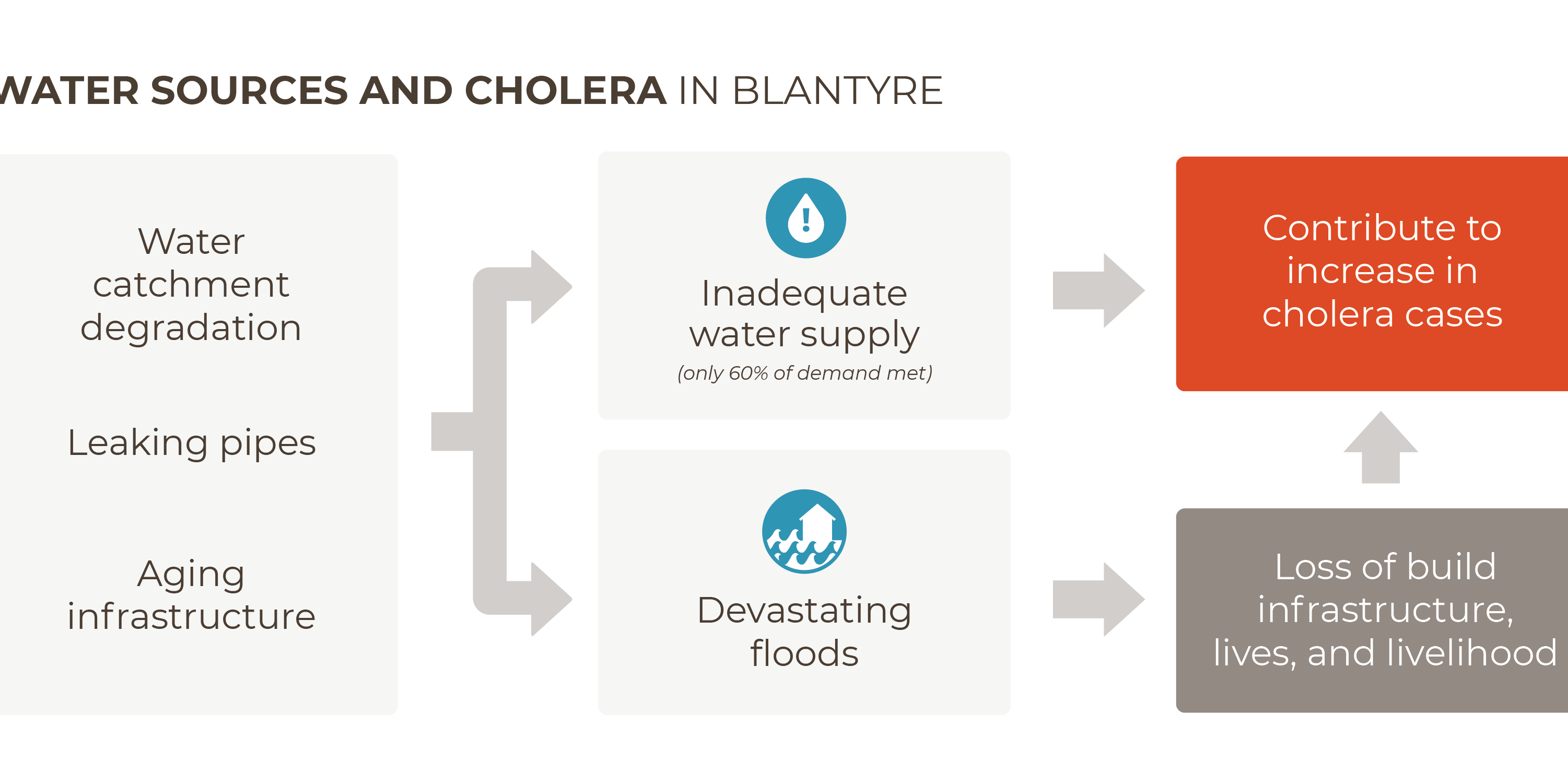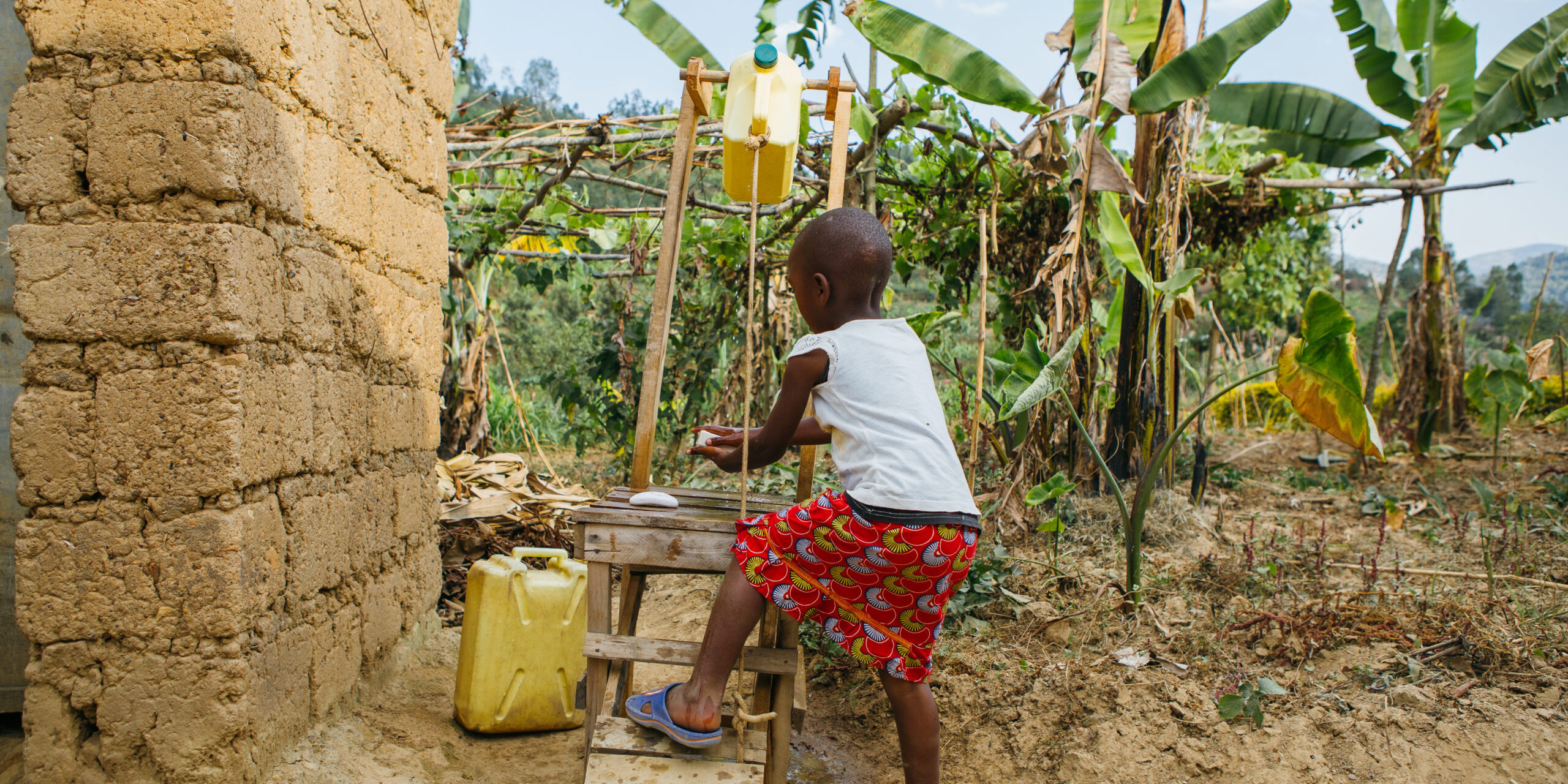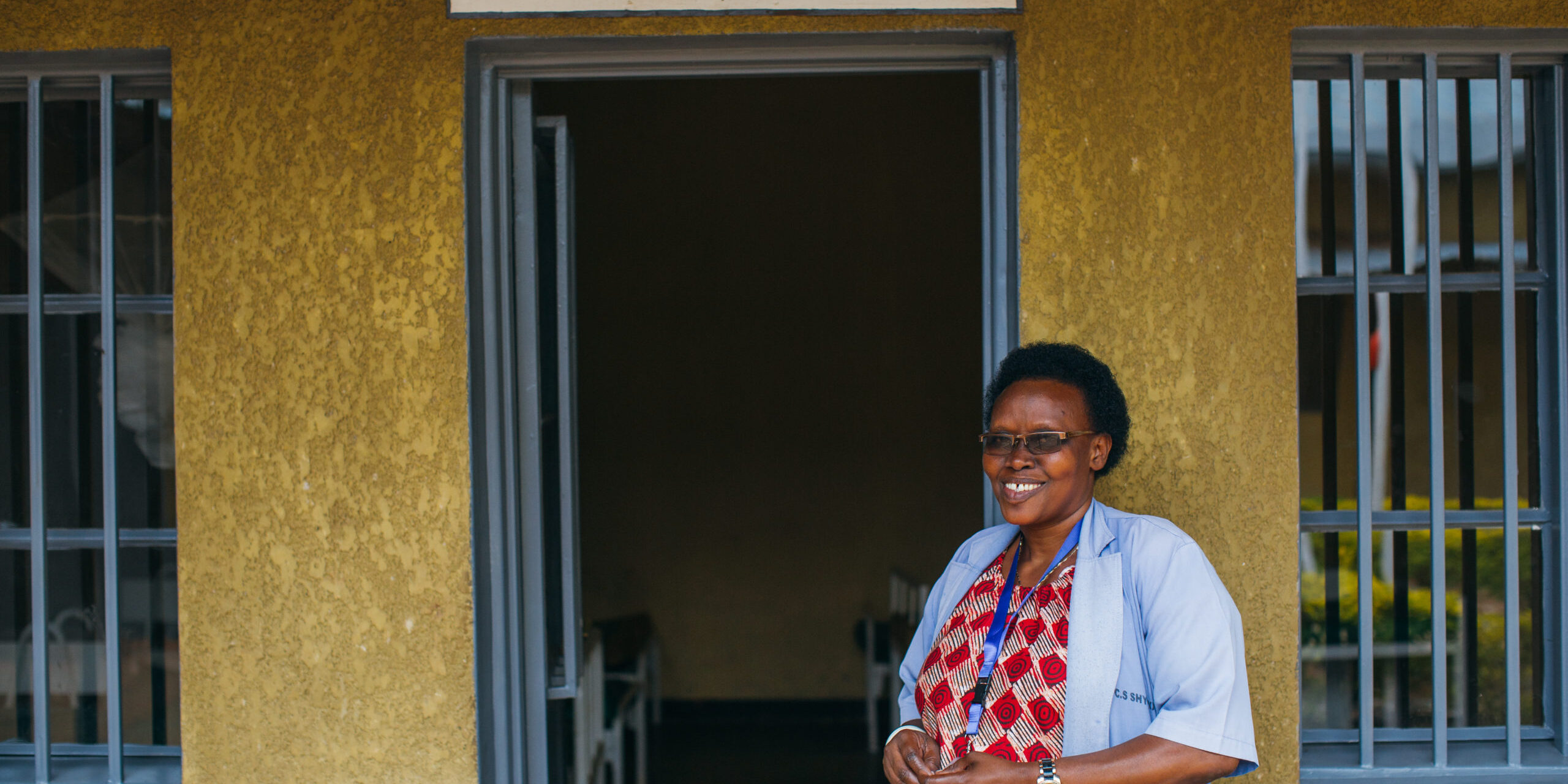Health and Water
How the Water Crisis Impacts Global Health

"The memories are still fresh," says Annie, a single mother of six. "I was working in the fields when I felt my stomach churn." Too weak to walk back to her home or call for help, she collapsed in her field. Her husband had died a few years earlier. If she died, too, who would look after her children?
Annie had cholera, as did five other people in her small village. She was the only one who lived.
Cholera is a preventable, water-borne illness that comes from contaminated water sources. No one should have to lose their life to it. Too many people still do.
Approximately 1 million people, 395,000 of whom are children under 5, are estimated to die each year from diarrhea as a result of unsafe drinking water, sanitation, and hand hygiene. These are entirely preventable deaths.¹
8% of maternal deaths (and up to 15% in lower- and middle- income countries) can be directly linked to unhygienic conditions during labor and birth and poor post-natal hygiene.²
1 in 3 healthcare facilities does not have access to hand hygiene (such as soap and water) where care is provided. Almost 2 billion people depend on healthcare facilities without basic water services.³
"Absent, inadequate, or inappropriately managed water and sanitation services expose individuals to preventable health risks."
– World Health Organization (WHO)⁴
What the Crisis Looks Like
In a Nation That Nearly Wiped Out Cholera, the Disease Is Surging Back
Malawi, in southern Africa, had all but eradicated cholera, recording only two cases in 2021. But more than 900 people died of it over the past 11 months, and the government is scrambling to contain its spread. Send any friend a story As a subscriber, you have 10 gift articles to give each month.
Diseases Explode after Extreme Flooding and Other Climate Disasters
More than four months after devastating monsoon floods began in Pakistan, at least 1,500 people have died. This ongoing emergency is causing illness and communicable disease to spread.
Frontline health facilities faltering without water, sanitation, hygiene and electricity - WHO, UNICEF new report
WASH, waste and electricity services are major contributors to high quality health care. Interventions such as improving availability of hand hygiene and drinking water stations, regular cleaning, functioning toilets and regular on-site water supply can greatly help in improving health services, staff performance and in respecting the dignity of health care facility users.
Nurse Alice oversees the maternity ward at a health center in Kamwenge, Uganda. She's standing in front of new handwashing stations.
The Work We're Doing
No one should die from a preventable disease. Water For People’s activities include protecting water sources, safely managing human waste, reaching hospitals and clinics with reliable water and sanitation access, and providing hygiene training in schools and communities – all of which contribute to saving lives.
Malawi | Creating a Future Without Cholera
Like many water-borne diseases, cholera is entirely preventable, making Malawi's rising death toll in 2023 even more heartbreaking. Here's how we can prevent epidemics like this in the future.
Malawi | Implementing Affordable Solutions
We're partnering with the local community and government in the Chiradzulu District of Malawi to create simple, economic, and practical handwashing stations.
Uganda | Supporting Health Care Workers
Health care centers without sufficient water are a danger to both patients and staff. We're working to create reliable systems to improve community health.
Further Reading
- "Surviving Cholera and Changing the Future" Annie survived cholera and now is making sure there are no more cases. Read her story.
- Ending infections acquired at health care facilities through robust WASH interventions in Kamwenge, Uganda. Read Water For People's case study.
- "Triple Threat: How disease, climate risks, and unsafe water, sanitation and hygiene create a deadly combination for children." Read the report from UNICEF.
- "Back to basics: Preventing the spread of disease with water, sanitation, and hygiene." Read the blog from the World Bank.
- "Improving access to water and sanitation can save 1.4 million lives per year." Read the WHO Report.
Sign Up
Sign up to learn more about the global water, sanitation, and hygiene crisis and how you can take action.
"*" indicates required fields
¹ World Health Organization (WHO), Water, sanitation, and hygiene: burden of diseases, 2019.
² BMC Health Services Research, "Water, sanitation, and hygiene (WASH) facilities and infection control/prevention practices in traditional birth homes in Southwest Nigeria," 2021.
³ WHO/UNICEF, Global progress report on WASH in health care facilities, 2020.
⁴ WHO Newsroom, Drinking Water Fact Sheet, 2023.



